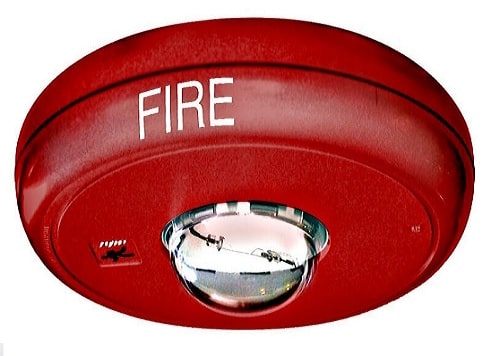
Fire Alarm
Fire alarms are designed to warn us in the event of a fire so that we can take the necessary precautions to protect ourselves, our staff, and the general public. Fire alarms can be found in businesses, warehouses, and public buildings; they are an important part of our everyday lives, but they are often disregarded prior to an emergency when they can save our lives. If the alarm goes off, pay attention to it.
Let’s begin with a simple question:
What makes up a fire alarm system?
The fire alarm system is an essential component of a building's protection systems. The fire alarm system should not be compared to a smoke detector because it plays a more important role. Each year, the systems assist in the protection of lives and property by controlling other systems in the building where they are located. Furthermore, many rules and laws make it mandatory for structures to have fire alarm systems. Buildings must have central automated monitoring stations, for example, according to the NFPA 72 code. When a fire occurs, the fire alarm system, in conjunction with other devices, senses the risk of a fire and alerts occupants and emergency responders.
How often should businesses have fire alarms inspected?
The National Fire Protection Association (NFPA) suggests that fire alarm systems be tested at least once a year. Nevertheless, this would not mean which testing should be done in January and December of the same year, but rather that inspections should be undertaken every twelve months or less. It is able to determine the most serious problems early enough before they develop to the point in which they could prove disastrous.
The most important parts of a fire alarm system are the following:
When you look at a fire alarm, you might think it's all about red and white lights on the walls and pull stations by the doors. Although these are device elements, there is a lot going on behind the scenes that we don't see. Depending on the type of device, fire alarms have different components. Fire warning systems, on the other hand, have three key components:
• Fire alarm control panel:
As the name implies, this component of the system directs and controls the other components. The aim of the control system is to keep track of the inputs from the initiating devices. The control hub then tracks the performance and provides the necessary information, ensuring that the integrity of the entire system is preserved.
Devices for initialization
The fire alarm system is activated by these devices. These are also known as input machines, and they can be either manual or automatic.
• Manual initiating devices: also known as manual initiating stations are initiating devices that activate the system with the aid of humans. They can take the form of buttons, pull stations, or break glass stations, among other things. Because of their sensitivity, these devices should be located in areas of your building where people can easily find, view, and operate them.
• Automatic triggering systems: These devices sense changes in their environment and automatically activate the system in an emergency. Flame detectors, carbon dioxide detectors, water flow detectors, smoke detectors, and many other devices fall under this group. Some new automated initiating systems are now in operation.
Devices of Notification
Some people consider warning systems to be an essential part of a fire alarm system. These devices use sound, visual, and sometimes olfactory stimuli to warn people during emergencies. The audio-visual form, which combines a bell, siren, or horn with a strobe or flashing red light, is the most popular.
Other parts of the system include:
Primary power supply: The fire alarm system's primary power source is usually 124v or 24v.
Secondary power supply: In the event of a power outage, a lead-acid battery may be used to power the device.
Interfaces for building security: In the event of an emergency, these features in the building make it easier for people to evacuate. Ventilation devices, for example, are included.
Make a call to the Fire Alarm System Experts.
The fire alarm experts at Secured Engineers Pvt. Ltd will assist you with anything from initial design to installation to routine inspections and maintenance. We've been defending and securing companies of all sizes since 2013. For all of your fire alarm system requirements, contact us today.



















